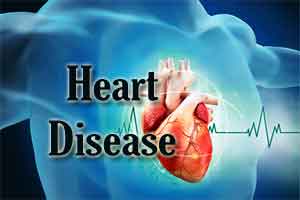- Home
- Editorial
- News
- Practice Guidelines
- Anesthesiology Guidelines
- Cancer Guidelines
- Cardiac Sciences Guidelines
- Critical Care Guidelines
- Dentistry Guidelines
- Dermatology Guidelines
- Diabetes and Endo Guidelines
- Diagnostics Guidelines
- ENT Guidelines
- Featured Practice Guidelines
- Gastroenterology Guidelines
- Geriatrics Guidelines
- Medicine Guidelines
- Nephrology Guidelines
- Neurosciences Guidelines
- Obs and Gynae Guidelines
- Ophthalmology Guidelines
- Orthopaedics Guidelines
- Paediatrics Guidelines
- Psychiatry Guidelines
- Pulmonology Guidelines
- Radiology Guidelines
- Surgery Guidelines
- Urology Guidelines
Lack of fruits and vegetables increases global heart disease burden

Portland : Globally, increasing the consumption of fruits and vegetables could save millions of years lost to disability and premature death from heart disease, according to a study presented at the American Heart Association's Epidemiology and Prevention | Lifestyle and Cardio metabolic Health 2017 Scientific Sessions.
Researchers used nutritional surveys and consumer expenditure surveys as well as data from previous studies on the impact of low fruit and vegetable consumption on the risk of heart disease to calculate the number of disability-adjusted life years (DALYs) healthy years lost to heart-disease-related disability or death for 195 countries. Overall, they found that, in 2015:
- Low intake of fruits accounted for 57.3 million DALYs;
- Low intake of vegetables accounted for 44.6 million DALYs;
- The burden of heart disease attributed to limited fruit intake was lowest in Rwanda (5.1percent) and highest in Bangladesh (23.2 percent);
- The burden of heart disease attributed to limited vegetable intake was lowest in North Korea (5.9 percent) and highest in Mongolia (19.4percent).
- Countries with the highest level of socio-economic development had the lowest burden of heart disease attributed to low fruit and vegetable consumption.
The researchers conclude that population-based interventions to increase the consumption of fruits and vegetables could lead to millions more years of healthy life worldwide.

Disclaimer: This site is primarily intended for healthcare professionals. Any content/information on this website does not replace the advice of medical and/or health professionals and should not be construed as medical/diagnostic advice/endorsement or prescription. Use of this site is subject to our terms of use, privacy policy, advertisement policy. © 2020 Minerva Medical Treatment Pvt Ltd